
Do you have what you need to make your garden grow?


Garden Center
Store Hours
Mon-Sat:
6:00am - 10:00pm
Sun:
8:00am - 8:00pm
Curbside:
09:00am - 6:00pm
Location
Popular at Your Garden Center
Spring Garden Supplies
Explore Popular Spring Plants
Garden Project Calculators
;Resize=(703,395.44))
Grass Seed Calculator
When you're ready to seed your lawn, our calculator helps you estimate the amount of grass seed you'll need to get the job done.
;Resize=(703,395.44))
Mulch Calculator
Enter your preferred material, the square footage and mulch depth of the coverage space for accurate results.
;Resize=(703,395.44))
Fencing Calculator
We'll calculate the amount of fencing you should purchase based on your property needs.
Shop Outdoor and Garden Brands
Frequently Asked Questions About Gardening
What planting zone am I in?
Check the USDA plant hardiness zone map, as planting zones have shifted over the years. Planting zones with higher numbers can plant earlier in the year. Choose plants that are meant for your zone and increase your odds of successful gardening.
When can I plant seeds outside?
If the soil isn't cold and frozen, consider planting your fruit, veggie, or flower seeds directly into your garden. This is called the "direct sow" method. The time to plant will be after the threat of frost is gone for the season, as seedlings and sprouts can't weather those conditions. You can also start your seeds indoors if you'd like. Consult your seed envelope for when and how to sow seeds.
How do I plant flower seeds?
Follow the directions on your seed packet. It'll tell you when to start them indoors and when to plant them outside. Generally, you'll add 3–5 seeds per planting hole, then push them down with your finger. Mark where you buried the seeds with a flag, wooden craft stick, or twig so you don't think they're weeds later.
Should I harden off my seedlings before planting them outside?
Yes, if you raised plants indoors from seeds in your own plant nursery, harden them before you transplant them. Hardening is the process of getting them used to the great outdoors. It slows their growth until they're strong and ready to take off during a spring warm front. Hardening also makes your plants more resilient to a sudden cold snap.
How do I plant a transplant or baby plant?
Squeeze the plastic around the plant to loosen the soil. Gently coax your transplant and the surrounding clod of dirt out into the palm of your hand, then place it into the hole you dug for it. Make sure the top of your transplant's soil is even with the garden soil, and carefully press the earth into place. Avoid leaving the plant as an island with a moat around it, and don't tamp down the ground too tightly. Your plant baby needs to breathe.
Should I use peat moss starters or coir starters?
Seed starters, full of nutrients in pots or pellets, work for new and experienced gardeners. You don't have to use these starters if you're planting in soil, but you may want to. Starting seeds in peat pots works best for delicately rooted plants like carrots and beets, as well as flowers that need acidic soil. Some people prefer coir starters instead, as they have a neutral pH. Check what type of soil your plants need to help narrow it down, and chat with a garden center associate if you need more info.
Garden Project Ideas
The Home Depot Garden Center at Northgate
Celebrate Springtime Gardening
It's time to start thinking of spring. Clean the shed and sweep out the gazebo to prepare for fragrant breezes, warmer temperatures, and sprouts poking up out of the ground. Planting seeds indoors with grow lights means you'll be ready to transplant young veggie plants and spring annuals when the frosts are through and the ground thaws. You might even want to plant organic seeds directly into the earth. What better way to start than by exploring your favorite local plant nursery, The Home Depot Northgate Garden Center?
Plant Hardiness Zones Explained
The first thing you should know when planting spring flowers, veggies, and other seeds is your planting zone. Every location in the U.S. and its territories is sorted by climate. Find your zone on the USDA zone map and learn when to plant seeds.
For example, you could transplant bell peppers outdoors in mid-March in Zone 10, but not until the end of May in Zone 4. The plants that'll thrive in your area are in your zone — plus all the zones numbered less than that. In other words, a Zone 7 garden can support plants listed as Zones 1–7. The timeframe to direct sow outdoors in your garden is often around a month later than the indoor start date. Be sure to read your seed packet for details. If you start them later than recommended, it's not ideal, but it will likely even out as time passes.
Gardening in Your Growing Zone
In the areas of Zones 9 and 10 stretching across the Southeast, you can begin planning and planting indoors early in the year. Your odds of frost are low in this part of the country, but not zero. Watch out for cold snaps and cover any early-riser bulb plants or sprouts during cold times.
Growing season begins early and ends late in this part of the country. A wide variety of vegetables, flowers, and plants thrive in Florida and southern Georgia. If you've got good soil drainage, you can even grow citrus trees. You'll have excellent results with peppers of all heat levels and colors, including bell peppers, jalapeños, and more. Zucchini, cucumbers, squash, and pumpkins, which are direct sow only, will flourish. Tomato plants will yield thriving leaves and fruit, as they're tropical in origin and are happiest in the heat.
Start Seeds Indoors
Save money when you grow your garden from seeds by starting them indoors in your own plant nursery. We've got all the seed starter supplies you'll need. Veteran planters and new gardeners alike should disinfect seed trays with a watered-down bleach solution before reusing them each year. When your pots or trays are prepared, plant your seeds. As for the soil, test the mineral levels and pH to find if it needs additives or amendments. Soil pH differs among regions, and what your plants need depends on what you're growing. Most veggie plants prefer a pH of 5.5–7.5. Soil amendments can tip the balance of your soil in a direction that'll help your plants.
Measure your finger to use it as a ruler. In general, you'll plant 3–5 seeds, then press them into the soil to the depth you need with your finger. Mark where you planted the seeds with a plant tag or toothpick. That way, you'll know where your seeds should pop up. Otherwise, it'll be a surprise when the sprouts push out of the soil.
Sprouts
Prepare your seed sprouts for outdoor life while they're still indoors. These micro-seedlings are fragile — only an inch or so high, with the tiniest seedling leaf or two — but they're resilient. Seedlings certainly don't get all this pampering in nature, so they can handle more than you think. However, don't go overboard, as your sprouts are still babies. You can even use an oscillating fan on low to mimic the wind and strengthen their stems.
Harden Your Seedlings
When you're hardening your sprouts and gradually introducing them to the outdoors, be flexible. Keep an eye on your baby plants. Bring them inside or move them to a shady spot if they're looking rough. As always, make sure they're watered enough but not drowning. Take wilted plants inside and give them a good drink, making sure they're healthy before setting them outdoors again.
Transplant Young Plants Into Their New Homes
Carefully take your seedling out of the container. Turn it sideways or upside-down and gently squeeze the plastic to break the seal. If your transplant grew in the garden, leave plenty of room around the stem and dig deeper than you think with your garden trowel. You don't want to damage the roots. Place it into the hole you dug for it, even with the surrounding soil.
Protect Your Garden With Mulch
Finish off your garden with compost and mulch. Mulch keeps your soil from drying out and controls weeds. Compost enriches the soil so your garden can grow even better. It may help foster larger and stronger plants that bear more flowers and fruit. Mulch and compost can be purchased in-store or created at home. The next time you're looking for "mulch near me," stop by the Garden Center to get the right amount.
Greet the Spring
Don't miss a minute of growing season. Plan your garden and landscaping, prepare to fertilize your lawn, and browse The Home Depot nursery to find inspiration on what to plant when the weather warms. For those without lawns, consider adding an outdoor rug, artificial grass, or a pellet grill to your balcony or patio. Shop for the fertilizer, soil, and seeds you need in the aisles of your Northgate Garden Center, online, or on our mobile app. Let's get growing together.
Nearby Stores
Find Another Store
16121 N Dale Mabry Hwy
Tampa, FL 33618
5.39 mi
Mon-Sat: 6:00am - 10:00pm
Sun: 8:00am - 8:00pm
1712 N Dale Mabry Hwy
Tampa, FL 33607
5.84 mi
Mon-Sat: 6:00am - 10:00pm
Sun: 8:00am - 8:00pm
6730 Memorial Hwy
Tampa, FL 33615
7.97 mi
Mon-Sat: 6:00am - 10:00pm
Sun: 8:00am - 8:00pm
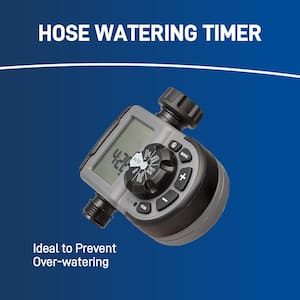
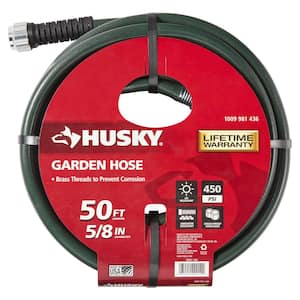
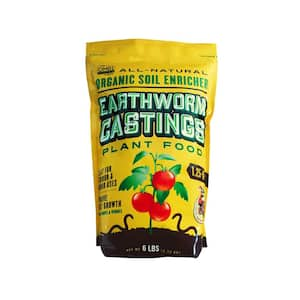
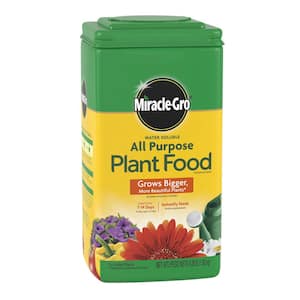
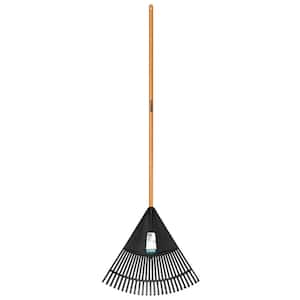
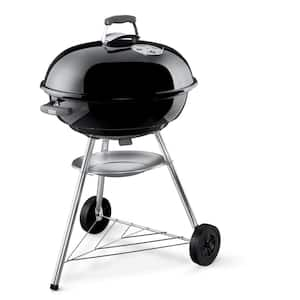
)
)
;Resize=(300,300))
)
)
/2023_P2_Rain_Barrels_Product%20Image%20(square).jpg?im=Resize=(300,300))
)
;Resize=(300,300))
)
;Resize=(300,300))
;Resize=(300,300))
;Resize=(300,300))
)
;Resize=(300,300))
/12_SOIL_B_0420_Social%20media%20(square).jpg?im=Resize=(300,300))
;Resize=(300,300))
;Resize=(300,300))
)
)
)
;Resize=(300,300))
;Resize=(300,300))
;Resize=(300,300))
;Resize=(300,300))
;Resize=(300,300))
)
;Resize=(300,300))
/18Patio_Camden_Seagrass_5pcSeating_Planters_302468736_DTL3_L_Social%20media%20(square).jpg?im=Resize=(300,300))
;Resize=(300,300))
;Resize=(300,300))
;Resize=(300,300))
;Resize=(300,300))
;Resize=(300,300))
)
)
)
.jpeg?im=Crop,rect=(363.69230769230774,1.2307692307692308,958.7692307692308,958.7692307692308);Resize=(300,300))
;Resize=(300,300))
;Resize=(300,300))
;Resize=(300,300))
)
)
;Resize=(300,300))
;Resize=(300,300))
;Resize=(300,300))
)
;Resize=(300,300))
)
)
)
)
;Resize=(300,300))
;Resize=(300,300))
)
;Resize=(300,300))
)
)
/Capello_Spring_Mum_10in_Social%20media%20(square).jpg?im=Resize=(300,300))
;Resize=(300,300))
)
)
;Resize=(300,300))
;Resize=(300,300))
)
)
)
)
)
;Resize=(300,300))
;Resize=(300,300))
;Resize=(300,300))











































